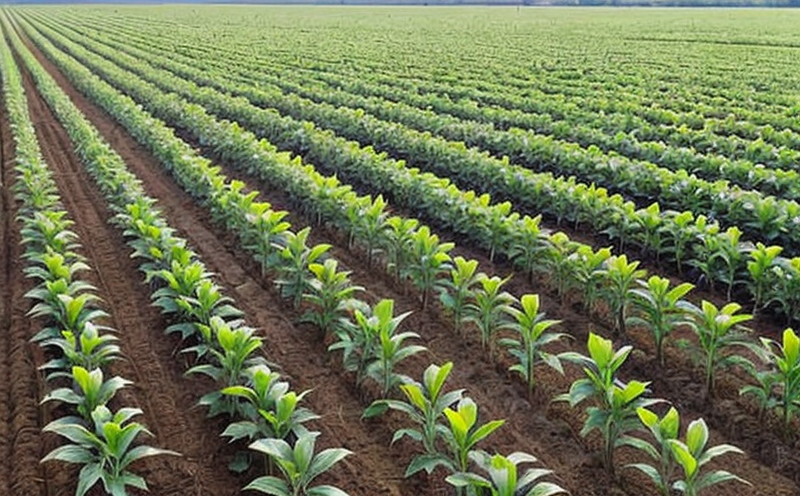EN 1785 GMO Testing in Imported Food
The European Union has stringent regulations to ensure that imported food products are free from genetically modified organisms (GMOs). This regulation is embodied by EN 1785:2013, which outlines the method for determining the presence of genetically modified organisms in foodstuffs. This service ensures compliance with EU laws and helps stakeholders meet regulatory requirements.
The test involves a meticulous process that starts with sample collection, followed by DNA extraction and amplification using polymerase chain reaction (PCR) techniques. Specific primers are used to detect target GMO sequences, such as 35S promoter, Ti plasmid nptII gene, or CaMV 35S terminator. The PCR products are then analyzed using gel electrophoresis to identify the presence of these sequences. This method is highly sensitive and can detect even trace amounts of GMOs.
Compliance with EN 1785 is crucial for importers, processors, and distributors who wish to enter EU markets without facing penalties or reputational damage. Non-compliance may result in product rejection at border checkpoints or fines. This service provides peace of mind by ensuring that imported food products meet the strictest regulatory standards.
The process also involves documentation preparation, which includes providing certificates of origin and authenticity. These documents are essential for demonstrating compliance with EU regulations. The test results are reported in a detailed format, specifying the presence or absence of GMOs and their specific types. This information is critical for traceability and consumer transparency.
Our laboratory uses advanced technology to ensure accurate and reliable results. We adhere strictly to international standards such as ISO/IEC 17025, which guarantees the quality and reliability of our testing services. Our team of experts ensures that every step of the process is meticulously followed, from sample preparation to final reporting.
The importance of this test cannot be overstated in today’s globalized food market. Consumers are increasingly concerned about the origins and composition of their food products. By ensuring compliance with EN 1785, importers can build trust with consumers and demonstrate their commitment to ethical practices.
- Ensures compliance with EU regulations on GMOs in imported foods
- Avoids penalties and reputational damage from non-compliance
- Provides detailed certificates of origin and authenticity
- Uses advanced technology for accurate and reliable results
- Adheres to international standards such as ISO/IEC 17025
- Maintains meticulous adherence to every step of the process
Why Choose This Test
- Ensures compliance with EU regulations on GMOs in imported foods
- Avoids penalties and reputational damage from non-compliance
- Provides detailed certificates of origin and authenticity
- Uses advanced technology for accurate and reliable results
- Adheres to international standards such as ISO/IEC 17025
- Maintains meticulous adherence to every step of the process
Competitive Advantage and Market Impact
Compliance with EN 1785 is not just a legal requirement; it also offers significant competitive advantages. By ensuring that imported food products are free from GMOs, importers can differentiate themselves in the market. This transparency builds trust among consumers who value ethical sourcing and product purity.
A company that consistently meets these standards can gain a reputation for integrity and quality, which is invaluable in today’s consumer-driven market. Moreover, compliance with EN 1785 can open new markets, as it demonstrates a commitment to meeting the highest regulatory standards.
Use Cases and Application Examples
This service has widespread applicability across various sectors of agriculture and food importation. For instance, grain importers must ensure that their shipments do not contain any unauthorized GMOs before they can enter EU markets. Similarly, processors who use imported ingredients in their products need to verify the absence of GMOs to maintain product integrity.
A practical example is a company importing soybeans from Argentina. Before shipment, these beans are tested for GMO content using EN 1785. If the test results are positive, corrective actions must be taken before the beans can proceed to market. This service ensures that such companies remain compliant and maintain their reputation.





